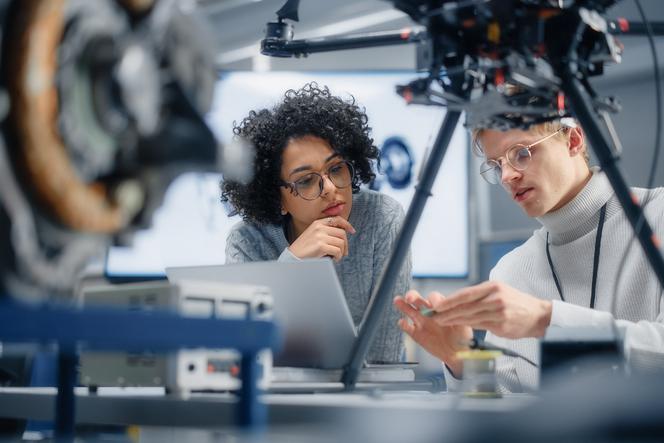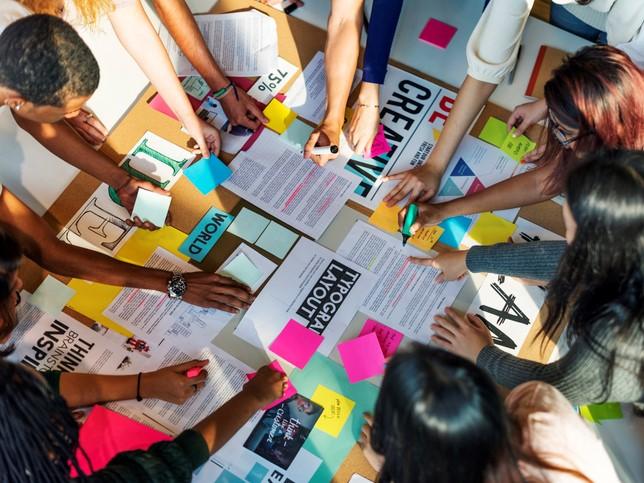
The three Cs of the 21st-century workplace: cognition, character and career
Changing skill demands require a lifelong approach to education that prioritises self-efficacy, critical thinking and a growth mindset. Here is how these elements can fit together in learning and career preparation
The 21st-century environment is volatile, uncertain, complex and ambiguous (VUCA) due to rapid digitalisation and disruptions such as the pandemic and climate change. In these precarious circumstances, higher education needs to hasten transformation, from the traditional strategy of preparing graduates with the latest technical knowledge and skills for specific jobs to focus more on inculcating character dispositions and transferable skills to empower learners to create their own career paths through life.
The 2023 World Economic Forum’s The Future of Jobs report estimates a net decrease of 14 million jobs (or 2 per cent of current employment) over the next five years. The rapid development of digital technology – in particular, automation and artificial intelligence (AI) – is expected to cause many lower-cognitive jobs to become obsolete, while creating jobs requiring higher cognition. Skills being prioritised by employers include creative and analytical thinking, complex problem-solving or decision-making, communication and collaboration, technological literacy and quality control. Equally in demand are dispositions such as self-efficacy, resilience, agility, adaptability, initiative and empathy.
- Why we need a new model for professional development credentials
- Bring your learners to life through personas
- How we can use AI to power career-driven lifelong learning
These evolving job expectations necessitate lifelong learning and continuous workforce development. The OECD Skills Outlook 2021: Learning for Life report mentions that lifelong learning “does not involve clear learning paths leading to a well-defined destination. It is a process that guides and helps individuals navigate a reality in which the goal is continually redefined because of a changing world.” Consequently, in the past decade, higher education has been challenged with delivering high-impact, lasting learning to both school-leavers and working adults, contributing to the economy and society.
In equipping graduates with employability (for employment and career development), higher education institutions (HEIs) should inspire learners to inculcate the 3Cs: cognition, character and career.
We argue that, when embedded in the curriculum, a three-in-one approach of an entrepreneurship education explicitly incorporating design-based thinking and authentic real-life contexts would instil and evolve lifelong learning and the 3Cs.
Cognition (and the value of design thinking)
In the 21st-century workplace, humans are expected to work with machines. Although human creativity and relational capability are seen as superior attributes, the rise of AI is challenging this advantage. Cognition (thinking), metacognition (thinking about thinking) and the neuroplasticity of the human brain allude to a capacity to create and innovate. Hence, in the context of global and complex challenges, teaching a cognitive approach to creative problem-solving, such as through design-based thinking, equips graduates to navigate a VUCA environment. Design-thinking strategies that focus on attributes such as empathy, open and non-judgemental ideation, experimentation, reflection and collaboration stimulate the best possible solutions. Empirical research shows that practising design thinking inculcates lifelong learning and employability outcomes such as critical thinking, creativity, innovation and character dispositions.
Instructional frameworks incorporating design thinking include using complex real-life problems to drive learning, group work in diverse collaborative teams and autonomy to exercise creativity. In our experience, cognitive skill development requires repeated exposure to both a productive learning space and an engaged application space.
Character: developing traits for a 21st-century workplace
Character is the mental, moral and ethical qualities unique to an individual; it is the way the individual thinks, feels and behaves. Self-development, which focuses on self-awareness, self-efficacy and self-confidence, is essential to regulate learning and development, and self-regulated learning is characterised by proactive efforts to source and benefit from educational activities. A growth mindset (the belief that capability can be developed through hard work, good strategies and input from others) and intrinsic motivation (together with curiosity) amplify the benefits of lifelong learning. A design-thinking approach has the potential to trigger self-efficacy and self-regulated learning (along with attributes such as empathy, curiosity, growth mindset and intrinsic motivation).
Further, in today’s globalised workplace, multidisciplinary and multicultural collaborations are a norm. Personal and professional ethics are increasingly important in an era of AI, where confidentiality and personal privacy are so easily compromised. Character development in the classroom through intentional group activities such as diverse team formation and interaction, peer feedback and peer assessment enhance ethical qualities such as integrity, respect, empathy, responsibility and commitment. Teamwork also promotes skills such as leadership, communication and evaluative judgement, while developing self-awareness and self-confidence.
Career in a changing, competitive, entrepreneurial marketplace
The 21st-century employment landscape demands employees to be proactive in charting their career paths. Employees can anticipate changing jobs every few years and continuing to learn through their six decades of career. Rapidly changing skill requirements and a competitive marketplace demand orientations that encompass gig employment, self-employment and entrepreneurship, creating entirely new value networks.
Entrepreneurship can be defined as the pursuit of opportunity beyond the resources at hand, so this “chase” and “resource attraction” introduces risk and potential failure while enabling growth and agility. To survive and progress, entrepreneurs must empower themselves to adapt, take risks, seek opportunities, embrace failure and be resilient. Entrepreneurship education prepares individuals to navigate the 21st century. In addition, incorporating experiential learning in real-life or close-to-real-life situations and industry partnerships with feedback and reflection that foster co-created learning trajectories enhances reality and foresight in developing an individual’s career path.
Therefore, in the VUCA 21st century, we recommend that a three-in-one creative pedagogy – an entrepreneurship education explicitly incorporating design thinking and delivered in an authentic real-life context – be embedded in every higher education programme to empower learners to inculcate the 3Cs, embrace learning and navigate employability through life.
Vijayakumari Seevaratnam is an MPhil graduate in the School of Education in the Faculty of Humanities and Social Science; Russell Manfield is a lecturer and entrepreneur-in-residence in the School of Business in the Faculty of Business, Economics and Law, both at the University of Queensland.
If you would like advice and insight from academics and university staff delivered direct to your inbox each week, sign up for the Campus newsletter.




